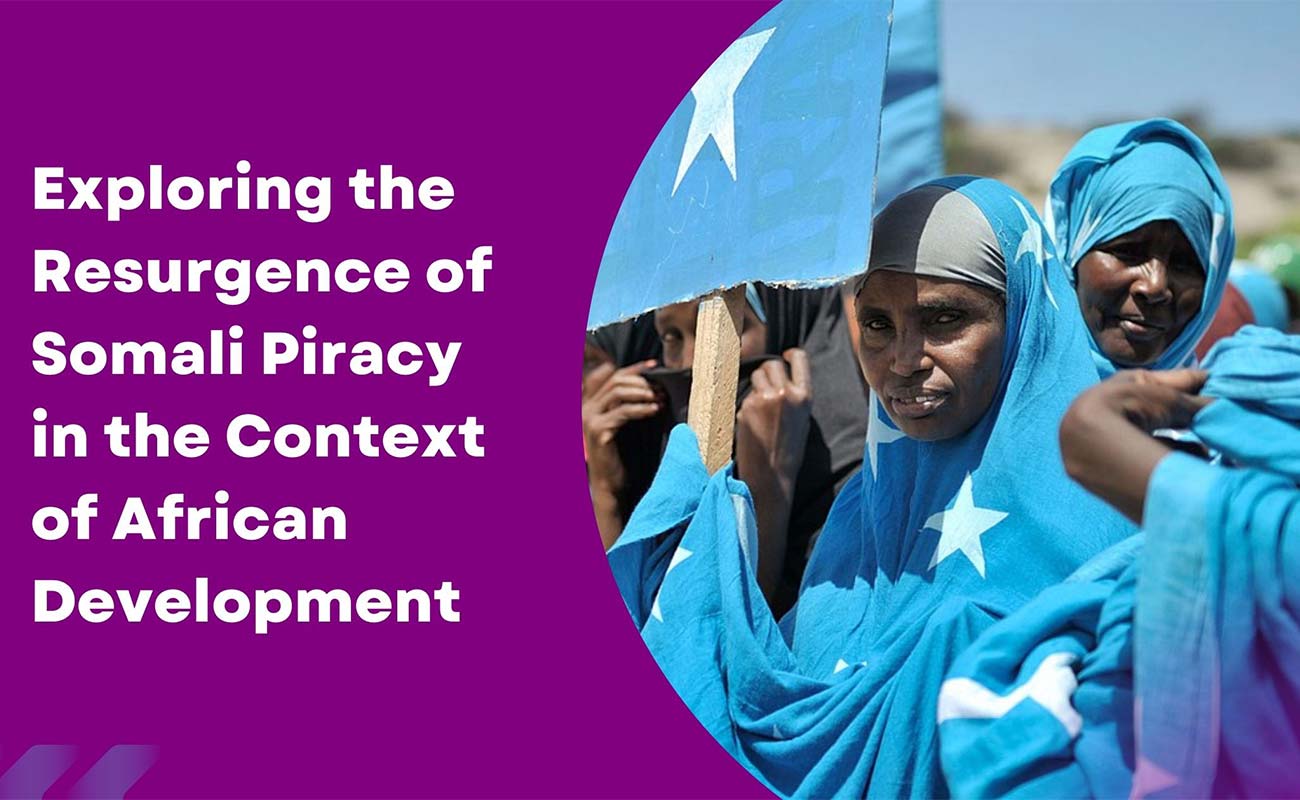
By Unwana Samuel
Understanding Al-Shabaab
Somali piracy has been a thorn in the side of international security for years. Pirates have been causing trouble and harm in the waters off the coast. Fortunately, the pirates’ influence and impact started decreasing in 2013. However, their operations resurged in recent months. On 12th March 2024, pirates hijacked the Bangladeshi-flagged MV Abdullah, which was carrying 55,000 tonnes of coal from Mozambique to Dubai, along with 23 crew members. The ship was eventually released, but not before the owners allegedly paid a large ransom. It’s a frightening situation, and many analysts believe that the focus of international security forces on Houthi attacks in the Red Sea has opened up a security vacuum that the pirates are exploiting. This article discusses these issues and explores potential solutions to this resurging threat.
Economy
One of the most tangible impacts of Somali piracy is its economic toll on African nations. Piracy disrupts maritime trade routes, increasing shipping costs and insurance premiums for vessels passing through the region. These additional costs are ultimately passed on to consumers, affecting the affordability of goods and hindering economic growth. Pirate activities discourage foreign investment in the area, as investors perceive the security risks associated with operating in pirate-infested waters as too high.
For instance, Egypt benefits from its geographical position, and from the Suez Canal, which forms part of the world’s busiest shipping route, connecting Europe and Asia. However, ships rerouting via the Cape of Good Hope due to piracy will likely affect the Egyptian economy (loss of foreign currency earnings) and the loss of operating earnings and employment from the Suez Canal Authorities. Mauritius and Seychelles are in a similar situation. Their economies depend heavily on tourism and the fishing industry, but Somali pirates pose a direct threat to both.
Additionally, for many people who have businesses and other investments in Africa, if or when their exported goods are delayed due to pirate activities, such businesses sometimes have to pay demurrage, shortening their profit or even leading to business losses.
Another factor is that Somalia depends on sea transport for food aid. In 2007, the World Food Programme (WFP) reported that the number of ships willing to carry food aid to Somalia had been cut in half due to the increased dangers faced by humanitarian relief vessels in Somali waters. Ship owners were worried about pirates seizing their vessels and holding their crews for ransom. This same concern is brought to the surface again.
Beyond its economic implications, Somali piracy also undermines regional security for African nations. The presence of armed pirate groups in the waters off the coast of Somalia exacerbates existing tensions and conflicts in the region. The proliferation of small arms and the illicit flow of funds from ransom payments further fuel insecurity, posing challenges to peacebuilding efforts in the Horn of Africa.
Over the years, a variety of tactics have been implemented to tackle this issue. Global travellers have bolstered the safety of their vessels with the inclusion of barbed wire, secure rooms, and high-pressure water weapons to dispel pirates. In addition, internationally recognized passageways have been established, enabling ships to travel in convoys while being accompanied by naval forces from their respective countries. Furthermore, international regulations now allow for armed guards to be stationed on board shipping vessels. While these measures have been effective for a while, there remain underlying problems that are yet to be fully resolved, some of which triggered the recent resurgence.
First and foremost, enhancing maritime security through increased naval patrols, improved information-sharing mechanisms and capacity-building initiatives can help reduce the current security vacuum, thereby deterring pirate attacks and protecting shipping routes.
Secondly, strengthening legal frameworks and international cooperation to prosecute and extradite pirates and their accomplices is crucial for holding perpetrators accountable and deterring future attacks. Finally, addressing the root causes of piracy, such as poverty, unemployment, and political instability in Somalia, is essential. This cannot be overemphasised. This requires supporting efforts to strengthen governance institutions, promoting economic development, and addressing the grievances of marginalised communities. Or else, the country would continue to be a breeding ground for sea criminals. This can come in the form of investing in alternative livelihoods for coastal communities, such as sustainable fishing and tourism -–viable alternatives to piracy that can contribute to long-term development in the region.
